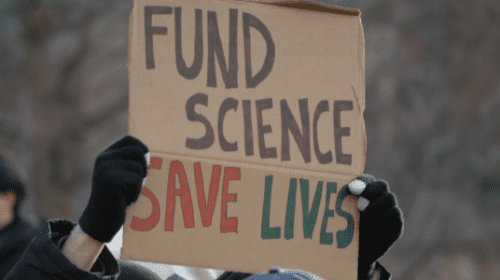Getting sober can bring significant positive changes. It can also bring a whole bunch of challenges. And unless you’re in treatment or working with an addiction therapist, nobody really talks about how tough those first days can be.
Everyone’s experience with the early days of recovery is different. It’s not all pink clouds and feeling better about yourself, but what you go through initially can lead to something worthwhile.
Whether you chose recovery or felt pushed into it, embracing the whole journey, with both the good and the tough parts, is the key to getting through it—one day at a time.
The Early Days of Sobriety
Quitting substances is tough—on your mind, body, and emotions. Your body gets used to having drugs or alcohol, so stopping is like a shock to your system. If you’re physically dependent, it can be critical to talk to your healthcare provider before quitting. Quitting cold turkey without a medical detox can be very dangerous, even deadly. To stay safe, get professional advice.
Let your brain know it’s time to adjust. Initially, you might feel more anxious, irritable, or moody. But as those first weeks pass, you’ll be better prepared to start the important work. Trust us, it’s all worth it in the end.
What to do when the cravings hit
In early sobriety, finding ways to manage your triggers and cravings is essential. Since you’re probably used to coping with substances, and that’s no longer an option, you need a replacement.
If you’re in treatment or working with a therapist, you’ll learn about managing cravings. But we’ve got some tips for you:
Find a replacement
Your replacement doesn’t have to mimic the real thing. It just has to stand in place of your go-to drug or alcoholic beverage. If alcohol was your coping mechanism, you might try replacing it with another non-alcoholic option like mocktails or NA beer.
Using replacement beverages can be super helpful for some sober folks. But non-alcoholic drinks that are too close to the real thing can also be triggering, so stay away if that’s you.
Create a recovery toolbox
Your “recovery toolbox” can include literal and figurative “distractions” when a craving hits. Here are some ideas:
- A book
- Essential oils
- Positive mantras
- A fidget toy
- Chewing gum
- Affirmation cards
- A pen and paper
- Candy
Call someone
Support is vital in recovery, especially at the beginning. If you’re doing it alone, those early days can be challenging. Choose a go-to person, like your sponsor or another person in recovery, for whenever you need a lifeline. And don’t worry about feeling like a burden. If this person wants to see you succeed, they will likely help in whatever ways you need.
Find new ways to spend your time
In early recovery, we have much more time on our hands than we’re used to. It might feel like so much that you end up realizing, if you’re not drinking or using drugs, what is there to do?
This boredom can bring loads of uneasy feelings into the mix—and those kinds of feelings aren’t something that people in recovery are typically very good at dealing with.
Try to distract yourself with other activities or people, or try something new. Keeping busy is another way to avoid cravings and deal with triggers. Use exercise, cleaning, or a new hobby to take your mind off everything else.
Support and connection are important
As much as you think you can do it alone, recovery is much easier with people who “get it” supporting you, which can look like in-person recovery groups, AA or NA, or online support groups.
The online sober community can be a great source of support. Head to your favorite social media app and search for sober accounts to follow. Create a personal account to interact with community members if you’re comfortable.
Your “New” Life in Recovery
When someone asks what’s changed now that you’re sober, the answer will probably be “everything.” And it’s true. Although you’re the same person, you are working to be a better version of yourself, and you deserve it. But getting used to all the newness can be a challenge.
Care for yourself
Start by making sure you take care of the bare minimum. Try to get enough sleep, practice proper hygiene, eat protein-filled foods like chicken, fish, eggs, and beans, and add your favorite fruits and veggies to your grocery list.
Be mindful of who and what increases your stress levels and mentally prepare before encountering whatever that stressor is. Work on developing healthy coping mechanisms and creating boundaries for what you will and won’t tolerate from others and for yourself in sobriety.
The need to rebuild trust
Deceit and avoiding the truth are common in people who struggle with substance abuse. Whether it’s hiding your use, stealing, or lying about your actions or whereabouts, people in recovery tend to have a lot of rebuilding to do.
If you consider other people’s perspectives, it makes sense. Would you believe yourself? Based on the past, could you trust that your actions are sincere? Rebuilding trust takes time, and sometimes, our words have little value. You can only acknowledge your mistakes and work to improve, one day at a time.
Remember, getting sober isn’t a quick fix for strained relationships. And in some cases, those relationships will never mend, which is a harsh truth about getting sober, but it’s something to be aware of.
Reconnecting With the World and Yourself
Using drugs and alcohol can cause us to lose sight of who we are and what we care about. Being sober can feel like coming out from behind a haze, which isn’t the most comfortable feeling right away, but it can lead us to have a new outlook on the world around us.
Many in recovery discover a new passion or purpose on their journey. Some decide to work in the addiction industry to help others recover. Other people begin exercising or become focused on a new hobby.
Relationships and social connections
Sobriety can feel like a fresh start to your life, a chance to hit the reset button. However, things don’t automatically fall into place without some effort on your part, especially when it comes to interacting with other people.
Rebuilding relationships can be challenging, especially if you feel like you’ve let people down in the past. But think about this: you’re the only one who can prove that you’re different now, right? It won’t be easy, but if it’s something you want, it’s worth it.
During the seasons of our lifetime, it’s normal for people to come in and out of the picture. Surround yourself with supporting people who uplift and encourage you to be your best, even when you don’t feel all that great.
And that awkward feeling you get at social events without your drug or drink of choice can be bizarre at first. Having something in your hands sounds like weird advice, but it helps!
The “new” you
Before sobriety, your identity was your substance use. As you progress in your recovery, you change, and that version of you becomes a memory. Remember how far you have come, and keep your “why” in mind. Just try not to stay stuck in the past.
Recovery is your chance to create a renewed sense of self—that means a lot of work! But you get to learn about who you are and why you are the way you are. Therapy is a great place to figure this out—those “aha” moments are priceless, and it might turn out that how your life has unfolded makes a lot of sense.
Not only is early recovery a great time to learn about yourself, but it’s also a great time to ditch the people-pleasing mindset. You should be your priority, no matter what.
How do you enjoy spending your time? And what kinds of activities could you do without? Who are the people in your life that you want to keep close to, and which ones should you spend less time with?
Finding strength and joy
Every day you wake up clean from drugs and alcohol is a victory. Acknowledge how far you’ve come, remember why you’re doing this, and celebrate your milestones. You deserve it!
Inspiration can come in many forms, from a fellow sober person or a celebrity in recovery—and it doesn’t have to be a person. The idea of living a life you love can be inspiration enough.
Recovery isn’t just about overcoming. There are endless opportunities if you embrace the journey. Where each step forward leads is up to you.
Quick Tips For Life In Early Recovery
- Take it one day at a time (ODAAT)
- Stay busy and distract yourself
- Build a support system of people who care
- Create new healthy routines
- Be kind to yourself
- Celebrate the wins, big and small
- Keep going, you’re worth it
If you’re in early recovery, we know how much this matters to you. Trust us, you’re doing the right thing, and you are never alone. If you need extra support, we’re here for you. Call us anytime at (855) 954-1194.

























